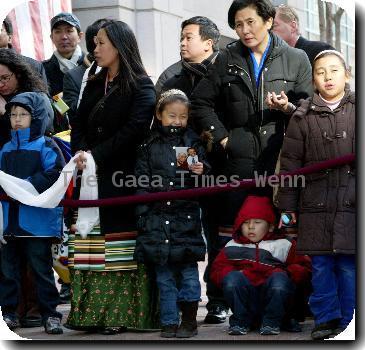Israel eases Gaza blockade, but restrictions on construction materials remain in place
By Karin Laub, APMonday, July 5, 2010
Israel completes list of items banned in Gaza
JERUSALEM — Israel on Monday dropped its long-standing restrictions on allowing consumer goods into the Gaza Strip but retained tight limits on desperately needed construction materials, redefining the rules of its heavily criticized Gaza embargo on the eve of the Israeli prime minister’s trip to the White House.
The new rules, which come in response to an international outcry following a deadly Israeli raid on a blockade-busting flotilla, should bring some relief to Gaza’s 1.5 million people.
The decision ends the use of a narrow and often arbitrary list of permitted items. In a boost to the moribund Gaza economy, officials also said raw materials would soon be allowed to flow to Gaza’s shuttered factories.
But prospects for rebuilding the damage from a punishing Israeli military offensive last year remain uncertain. Israeli officials said construction materials like iron and steel would be allowed to enter only under Israeli supervision for use in projects overseen by the United Nations or other international bodies.
The officials spoke on condition of anonymity because the list was only being released later Monday.
Israel has been under intense international pressure to loosen its three-year embargo on Gaza since Israeli commandos killed nine Turkish activists in a May 31 raid on a flotilla carrying international activists trying to breach the blockade.
President Barack Obama, who is to meet with Israeli Prime Minister Benjamin Netanyahu on Tuesday, has said the embargo is unsustainable and has called for it to be significantly eased. Other world leaders have demanded the blockade be lifted entirely.
Israel and Egypt closed Gaza’s borders after the Islamic militant Hamas group violently seized power in the territory three years ago.
Under the old blockade rules, Israel permitted only a few dozen types of products, including basic food and medicine, into the territory. The system has forced Gazans to become accustomed to shortages of basic items like instant coffee, spices and fresh meat, or to depend on erratic deliveries of goods smuggled through tunnels along the southern border with Egypt.
Now, everything will be allowed into Gaza, except for items on the list.
But it remains unclear how much the order will help Gaza rebuild the damage caused by Israel’s three-week military offensive in the winter of 2008-2009. The operation, launched to stop Hamas rocket attacks, destroyed thousands of homes, buildings and public infrastructure.
An official familiar with the list said items like iron, steel, cinder blocks, chemicals, fertilizer, building aggregates and jeeps would only be permitted in coordination with the rival Palestinian government in the West Bank and international agencies overseeing construction projects.
Israel fears that Hamas could divert these items for military use.
Israel has previously allowed in only a trickle of construction materials for projects overseen by international aid agencies.
Israel’s defense minister, Ehud Barak, told a parliamentary committee Monday that a naval blockade on Gaza would remain in place to keep weapons from reaching Hamas, an official who attended the meeting said. The official spoke on condition of anonymity because the hearing was closed.
Barak was to meet later Monday with Palestinian Prime Minister Salam Fayyad in Jerusalem to discuss the details of easing the blockade.
Implementation will be complicated by the presence of rival Palestinian governments. Hamas has controlled Gaza since ousting forces loyal to Palestinian President Mahmoud Abbas in 2007. But neither Israel nor the Abbas-Fayyad government has relations with the Iranian-backed militant group. The various sides will now have to find a way to get materials into the seaside strip.
Other obstacles also remain.
Col. Moshe Levy, a top Israeli military official for the Gaza region, said Israel would ease its ban on raw materials for Gaza’s devastated manufacturing sector. But he said there were no plans to allow Gaza factories to begin exporting.
The sanctions on the manufacturing sector have forced hundreds of factories to close and led to the loss of tens of thousands of jobs.
Levy also said there were no immediate plans to open additional cargo crossings with Gaza. Israel currently operates just one crossing, and Palestinian economists say it does not have enough capacity to meet Gaza’s construction needs.
Gaza business people and human rights groups have expressed concern that Israel’s changes will largely be cosmetic.
“Gaza residents can now purchase Israeli-made products, but they are still prevented from engaging in dignified, productive work and from traveling,” said Sari Bashi of the Israeli advocacy group Gisha.
Tags: Barack Obama, Blockades, Gaza Strip, Government Regulations, Industry Regulation, Israel, Jerusalem, Manufacturing Sector Performance, Materials, Middle East, Palestinian Territories, Territorial Disputes






